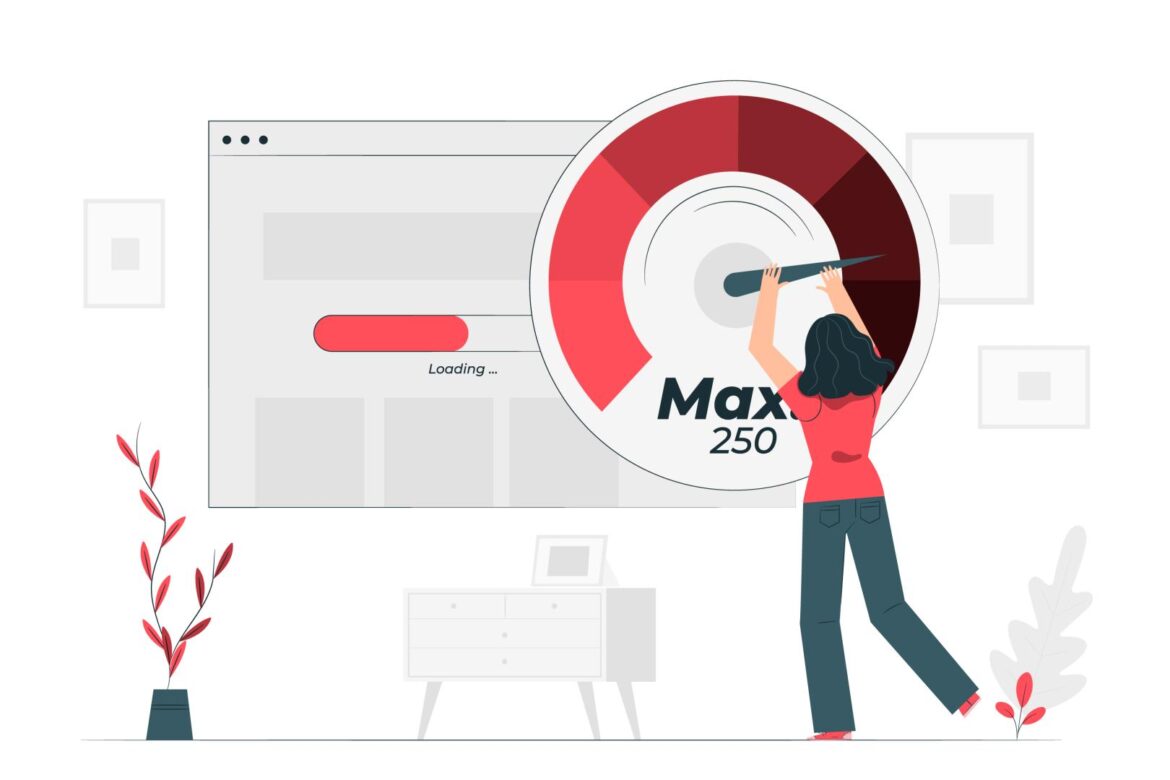In the fast-moving digital environment, site speed is critical in determining online success. Not just because it impacts user experience, but it also plays an important role in search engine optimisation (SEO). In this blog, we’ll discover how site speed affects SEO marketing and explore its impact on search rankings, user engagement, and conversion rates. So, tighten your seatbelts and get set to turbocharge your site’s speed!
User Experience
With the increase and advancement of technology, users are becoming less patient – a fast-loading website will enhance their experience.
When visiting your website, the site loading speed is often their first interaction with you. A fast site speed gives a good first impression and sets the tone for what they think of your brand. Moreover, internet users often have short attention spans and expect websites to load quickly and smoothly. A slow load speed can lead to frustration, causing users to leave and seek information elsewhere, resulting in a high bounce rate.
Mobile Performance
As with user experience, site speed affects mobile performance in a similar way. Many users will use a mobile device to access your website, so they expect it to be optimised for mobile use, and if it’s not, they will leave quickly!
Mobile users often access your site through different network conditions, such as 3G, 4G, and 5G. Faster site speed ensures that your website loads quickly, even under less-than-ideal network situations, providing a better user experience.
Google and other search engines recognise that more people are using mobile devices to access the internet, so they prioritise mobile-friendly websites in their search results. Sites that focus on their speed and mobile performance will see better results from their SEO marketing, as search engines will reward them over their slower counterparts.
Search Engine Rankings
If you are not seeing results from your SEO efforts and sat there wondering: ‘Does SEO work?’ – chances are, your slow site speed could be the culprit! Google’s ranking system penalises slow websites because they offer a poor user experience, and the algorithm is designed to provide the best experience for the user.
Site speed also affects how efficiently search engines can crawl and index your website. Faster websites allow bots to crawl more pages within a given time, leading to better indexing and improved visibility in search results. Moreover, slow-loading sites may cause search engines to allocate fewer resources to crawl your site, which can have a negative impact on your search rankings.
Lastly, improving your site speed can help you to gain an edge over the competition! Search engines prioritise fast sites, so optimising your speed can give you a competitive advantage in the SERPs, attracting more organic traffic.
Conversions
As well as affecting your SEO performance, site speed can greatly impact whether or not traffic on your site actually converts.
The effect on conversion is all to do with providing a good user experience. If your site loads slowly, buffers and crashes, users are not going to want to stick around. They will abandon your site quickly, looking for a competitor who can provide them with what they need.
When a user has a good experience on your website, seeing it perform smoothly, they will have more trust and confidence in your product or service and will be more likely to convert to a customer – investing time into optimising your site speed is in your best interest!
What is a good site speed?
Site speed is crucial for enhancing your site’s performance in search results and providing a good user experience. But what should you be aiming for?
The best way to check your site speed is to use Google’s Page Speed Insights tool. Simply paste your URL in, and you will be able to see your mobile and desktop speeds, along with any issues with your core web vitals.
Page Speed Insights measures site speed in 3 categories:
- Good
- Needs Improvement
- Poor
You want to aim for a ‘good’ rating, which is anything above 90. If your site isn’t hitting this, take a look at the opportunities list below, which will give you a good idea of what steps to take to improve the speed of your site.
There are many things you can do to improve your site speed, such as installing Plugins, optimising images, and reducing unused JavaScript. However, a lot of the fixes will be technical, so it may be best to invest in a professional SEO company that can use its expertise to improve your site speed and get you ranking higher in search engines!
Site speed is undoubtedly a crucial part of any SEO marketing strategy, affecting your users’ experience, search rankings and visibility, and converting your visitors to customers. If you are not putting the time into your site speed already, you should be!
Get in touch with us today to learn more about how we can help you improve and win big with SEO.
